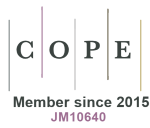Downloads
How to Cite
Berggrund, M., Ekman, D., Gustavsson, I., Sundfeldt, K., Olovsson, M., Enroth, S., & Gyllensten, U. (2016). Protein Detection Using the Multiplexed Proximity Extension Assay (PEA) from Plasma and Vaginal Fluid Applied to the Indicating FTA Elute Micro Card™. Journal of Circulating Biomarkers, 5(1). https://doi.org/10.33393/jcb.2016.2077
Issue
Section
Original research article
Statistics
- Abstract views - 1093 times
- PDF downloads - 824 times
Sign up
banners150
Most popular articles in the last 30 days
-
253
-
248
-
222
-
184
-
151









